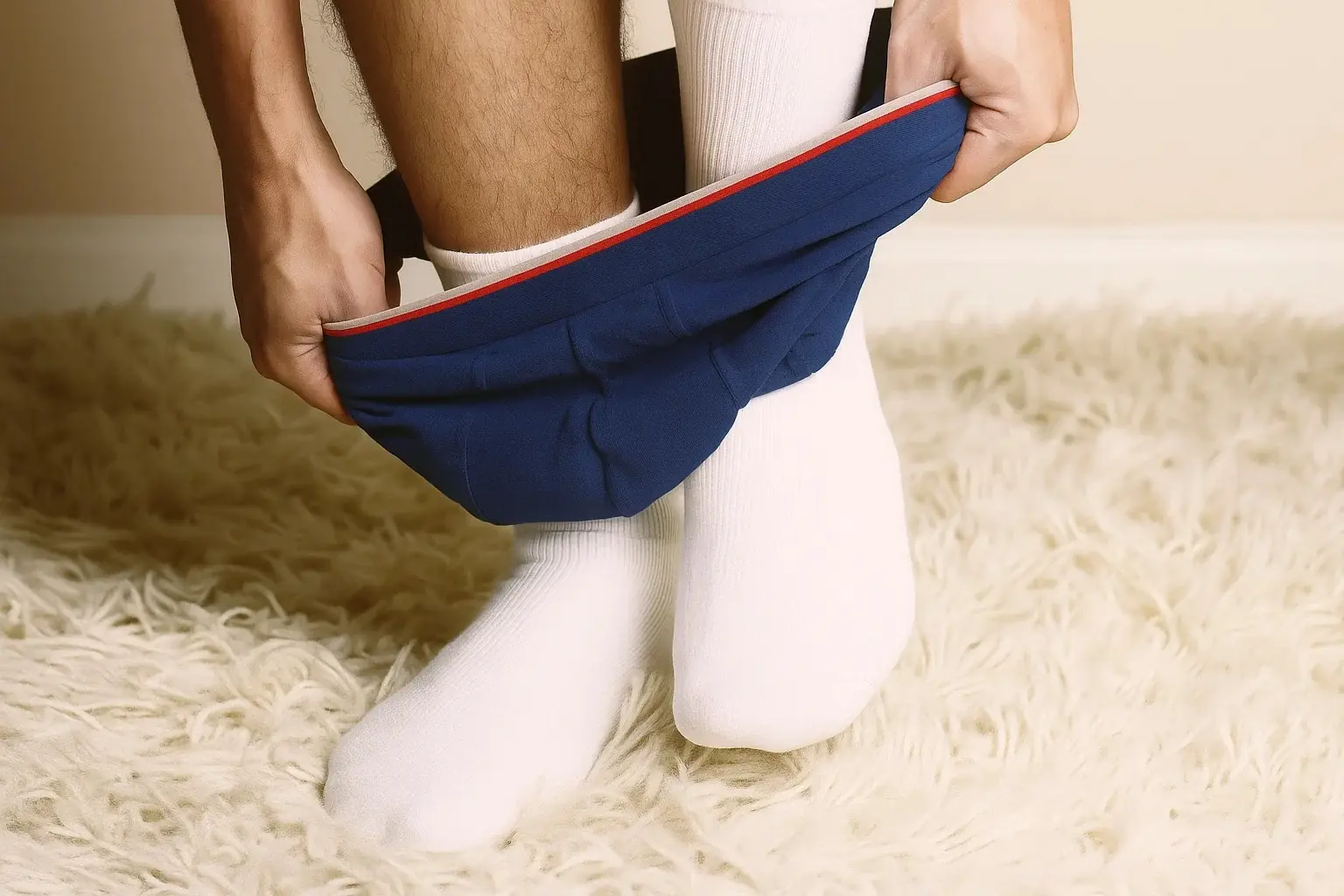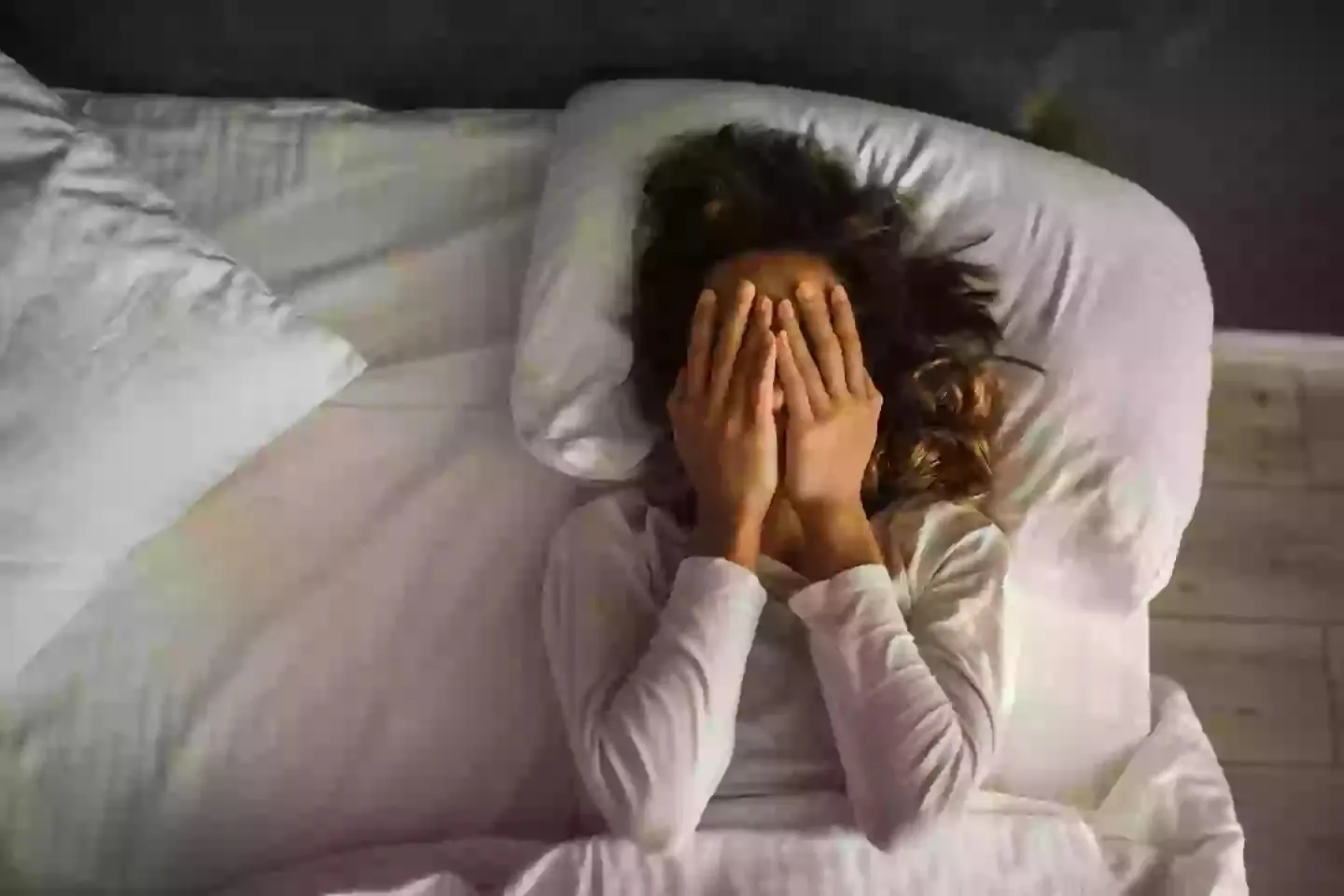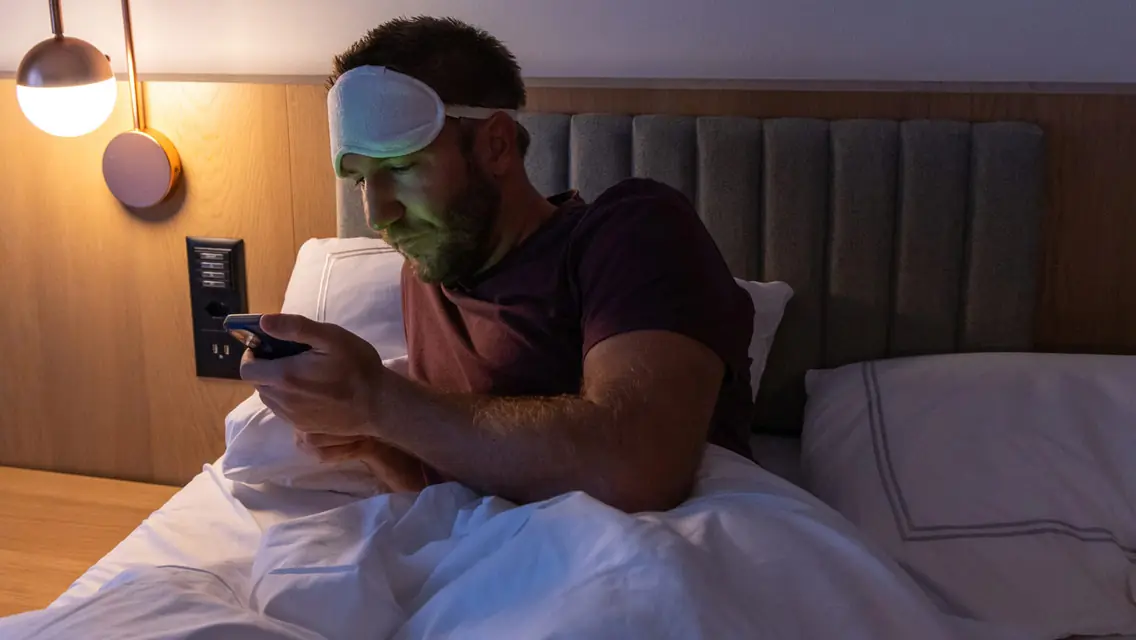
7 shoking reasons you shouldn't sleep in your underwear or risk health issues
It may sound surprising, but experts are cautioning against something many people consider perfectly normal: sleeping in underwear. While it might feel comfortable, studies and health specialists suggest it could be creating long-term problems that go unnoticed until they become difficult to manage.
The team at Belle Lingerie, who compiled extensive research on sleepwear habits, revealed seven unexpected dangers linked to keeping underwear on overnight. And the findings might just convince you to ditch those undies before bed.
Millions of people believe that covering up at night is a matter of comfort, modesty, or even hygiene. But in reality, those habits may be doing more harm than good. The body, particularly sensitive skin and reproductive areas, requires rest and recovery at night—something underwear may actually disrupt.
Here are the surprising reasons why experts recommend giving your body more breathing room while you sleep:
1. Increased Risk of Yeast Infections & UTIs
Few things are more uncomfortable than a urinary tract infection or yeast overgrowth. They can cause itching, burning sensations, and overall misery. Unfortunately, wearing underwear at night creates a warm, humid environment that bacteria and yeast love to thrive in.
Even breathable cotton can trap warmth if it fits snugly against the skin. Over time, this increases the likelihood of infections that require antibiotics or topical treatment. Women, in particular, face greater risk, but men aren’t completely exempt. Experts recommend letting the area “air out” overnight to naturally reduce bacterial growth.
2. Skin Irritation, Rashes, and Fungal Growth
Nighttime is when skin regenerates, but underwear—especially lace, elastic, or synthetic fabrics—can work against this natural process. As you toss and turn, the constant friction combined with sweat can lead to redness, rashes, and even fungal infections.
Those with eczema or sensitive skin are especially vulnerable. Leaving underwear behind, or switching to loose cotton sleepwear, helps the skin heal and stay balanced overnight.

3. Reduced Sperm Count and Male Fertility Issues
For men, temperature regulation is critical. Testicles are naturally designed to stay slightly cooler than body temperature to support sperm production. Wearing tight underwear at night can raise scrotal temperature by several degrees, which has been linked to reduced sperm count and even infertility in medical studies.
One experiment showed that participants exposed to prolonged heat in the groin area experienced long-term fertility issues. Another study found that men who wore insulated jockstraps had measurable drops in sperm count after just three weeks. Underwear at night may unknowingly contribute to similar risks.
4. Poor Air Circulation and Bacterial Build-Up
Healthy skin needs airflow. Without it, sweat and bacteria stay trapped, leading to blocked pores, folliculitis, and even acne-like breakouts in the groin and thigh areas. Experts stress that ventilation is essential for natural skin repair.
Skipping underwear allows the body to regulate temperature better, reduce odor, and minimize irritation.
5. Lower Sleep QualityEven if you don’t notice it, underwear can make you uncomfortable at night. Fabrics can bunch up, dig into the skin, or cause pressure points that subtly wake you up. Over time, these small disruptions affect sleep cycles, resulting in grogginess, poor focus, and irritability during the day.
Choosing looser clothing—or none at all—can lead to deeper, more restorative rest.

Moisture and heat are a recipe for fungal growth, and underwear provides both. Wearing the same pair you’ve had on all day only worsens the problem, as bacteria and sweat accumulate over hours. This makes nighttime the perfect storm for infections like thrush and ringworm.

Modern underwear often contains synthetic fibers treated with chemicals such as dyes and flame retardants. While these additives may seem harmless, prolonged skin contact—especially during 6 to 9 hours of uninterrupted sleep—could gradually affect the endocrine system and disrupt hormone balance.
Researchers are still studying the long-term consequences, but experts agree that minimizing unnecessary exposure is a smart preventive step.
So, What’s the Solution?
The cure is surprisingly simple: take off your underwear before going to sleep. Doing so allows the skin to breathe, reduces the risk of infection, and supports overall reproductive health.
If going fully nude feels uncomfortable, opt for light, breathable cotton pajamas that allow for ventilation without trapping heat and sweat. Your skin—and your sleep—will thank you.
News in the same category


School speaks out after woman goes viral for 'stealing' baseball from kid at Phillies game

OnlyFans model who slept with 100 men in a day makes "heartbreaking" confession
Going viral on social media often comes with fame and fortune — but also unexpected sacrifices. For one British creator, the fallout from her controversial career hasn’t just impacted her life, but also deeply affected her family.

Food Experts Warn: 5 Everyday Foods You Should Never Put in the Freezer
Freezing leftovers is often hailed as the easiest way to cut down on food waste and save money. But according to food safety experts, not all foods handle icy temperatures well — and some can turn into an unappetizing mess after thawing.

Husband of employee caught with CEO on Coldplay jumbotron breaks silence with shocking twist

Man who can see through his tooth after being blind for two decades speaks out about experience

The Shocking Truth Behind Viral Photo of Tourists Sitting on Chernobyl’s “Radioactive Claw”
A resurfaced photo of two women casually sitting on what’s described as “the most radioactive object accessible in Chernobyl” has sparked heated debate online. The image, taken in the exclusion zone, reveals a chilling disregard for one of the deadl

Bit of a shocker': 14 nurses at 1 Wisconsin hospital are pregnant at the same time
One hospital is experiencing a joyful — yet logistically challenging — surprise as an entire team of nurses prepare for motherhood together. With 14 pregnancies overlapping in the same unit, colleagues and managers are rallying to balance patient care

Heartwarming gesture from player after grown woman was caught doing controversial act to boy and father on live TV
A tense moment at a baseball game nearly ruined a child’s birthday when a controversial act by an adult fan shocked the crowd. But thanks to the kindness of players and team staff, the story ended in the most heartwarming way possible.

Controversial 'standing seats' could be brought into airlines next year with tickets as cheap as $5
Flying might soon look very different — and not everyone is thrilled. Airlines are reportedly preparing to introduce standing-style airplane seats that could slash ticket prices to just $5, sparking heated debate about comfort, safety, and the future of

French Farmer Discovers $4 Billion in Gold on His Land — But a Crushing Law Means He Can’t Keep a Cent
A once ordinary farming day turned into the discovery of a lifetime when a French farmer unearthed billions in buried gold. But his dream of instant fortune has quickly been replaced by frustration after learning a shocking rule may strip him of every oun

Baba Vanga’s Terrifying Predictions for the Next 3,000 Years Are About to Begin
For centuries, humanity has been fascinated by prophecies that claim to reveal the future. Now, a chilling set of predictions from one of the world’s most famous mystics, Baba Vanga, is resurfacing — and many of her forecasts are set to begin unfoldin

Worrying study suggests "the end of the universe" could be approaching "much sooner" than scientists thought
Astrophysicists have issued a chilling warning that the end of the universe may arrive far earlier than anyone previously believed. At the same time, centuries-old prophecies from famed mystic Baba Vanga resurface, sparking new debates about humanity’s

Apple insider reveals new leaks about foldable iPhone release for 2026
Apple may still be gearing up for the iPhone 17, but tech insiders are already buzzing about what comes next. If the leaks prove true, the iPhone 18 lineup could be Apple’s boldest reinvention yet, featuring a foldable design that could reshape the futu

Surgeon explains why he had his own legs amputated as he's sentenced to 32 months in jail
A former vascular surgeon stunned a courtroom as he explained why he deliberately destroyed his own legs before undergoing amputation. His disturbing double life, hidden beneath a respected medical career, has now unraveled into scandal, divorce, and pris

Grown woman caught on live TV doing controversial act to child and father at MLB game
What started as a joyful birthday surprise at an MLB game turned into a viral controversy when a fan stormed over to demand a ball from a father and his young son. But the story didn’t end there—what followed was both heartwarming and unexpected.

Apple insider reveals new leaks about foldable iPhone release for 2026

Experts reveal the five foods you should absolutely never freeze

Here’s how much the Powerball winner will owe in taxes after the $1.8 billion jackpot
The Powerball jackpot has climbed to an astronomical $1.8 billion, the second-largest prize in U.S. history. But before the lucky winner can celebrate a life of luxury, the taxman will be waiting with a massive bill that could drain hundreds of millions f
News Post

Nighttime Habits That Increase Your Risk of Stroke

Add a few drops of essential oil to the water used to clean the floor. Knowing the benefits, every family wants to follow suit.

Put garlic at the bedside, its "golden" uses, anyone who reads this will want to try it.

Honey, Lemon, Onion, Garlic & Ginger: The Daily Spoonful That Works Wonders

Vitamin E Oil uses for Skin – Glowing Skin, Dark Circles & Wrinkles

4 toxic plastic items

The Chicken Seller Said: "These 3 Types of Chicken Meat, No Matter How Cheap They Are, I Never Buy..."

4 Signs Your Kidneys Might Be in Serious Trouble

The Potent Remedy: Turmeric and Honey as a Natural Antibiotic

If Your Legs Cramp at Night, You Need to Know This Immediately!

Hanging a Towel on the Door Handle Before Bed: Unexpected Benefits That Few People Know

Why You Should Always Close Your Bedroom Door Before Going to Sleep

The FIRST Sign of HIGH BLOOD SUGAR Is…

The Shocking Effects of Sleeping Less Than 7 Hours

Scientists Have Discovered a “Kill Switch” in The Body That Can Destroy Any Cancer Cell

Snoring Isn't Just Annoying: It Could Be a Serious Health Warning

It grows everywhere, but this stunning plant hides a dark and dangerous secret… 💬👀

Cutting Plastic Bottles for the Kitchen: Amazing Uses You’ll Wish You Knew Sooner

CCF Detox Drink For Glowing Flawless Skin
